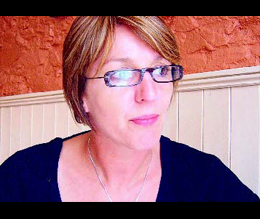Rose Foley speaks to Fiona Finn of Nasc, the Irish Immigrant Support Centre, about the group’s work for immigrants throughout the country
Back in her native Cork since 2002 after a number of years in London, Fiona Finn took her experience working with asylum seekers and refugees in the UK to help immigrants in Ireland.
As CEO of Nasc, the Irish Immigrant Support Centre, Finn oversees the Cork-based NGO that aids up to 3,000 immigrants, including asylum seekers, each year.
“We contribute to an environment of social inclusion for all communities based on principles of equality, social justice and human rights,” says Finn, who outlines the three pillars that underpin the work of Nasc – legal assistance, community development and policy work – all of which is provided free of charge.
The centre’s legal information service helps clients navigate their way through the often unwieldy immigration system, whether the issue is applying for Irish citizenship, attempting to gain legal residency or working as an undocumented immigrant.
A drop-in service allows clients to come in to the centre and seek assistance without having an appointment. They can also be assigned a case worker who will assist them on an appointment basis.
“We help them with all aspects of any queries or applications that need to be made to the Department of Justice,” says Finn. “We don’t deal with the asylum application itself, but anything around that.”
On average, 350 clients are aided each month through the legal information service. “We find that Nasc-assisted applications are a lot more successful than unassisted applications,” she notes.
Many of the immigrants seeking assistance come from Nigeria, Congo, Sudan and Iraq, the majority of them being people who are seeking asylum in Ireland. Increasingly, says Finn, more and more of those requiring assistance are Irish nationals who have married non-EU citizens.
In the area of community development, Nasc – which is the Irish for ‘link’ – works through a number of subgroups dealing with women, social and cultural issues, policy and campaigning, and a speakers’ panel. Finn explains that the focus is migrant-led.
“We try to identify collective needs and actions they want to take and support them,” she says. “We want to be able to encourage migrants to take action on the issues that affect themselves.”
Nasc, which is funded by The Atlantic Philanthropies and the One Foundation and employs seven full-time workers and one part-time employee, campaigns at a national level on issues that are important to the immigrant population, such as discrimination, citizenship and residency.
Finn stresses that the law regarding immigration in Ireland is not set in stone because many rules are policy-driven. She gives the example of the lack of automatic right of residency for a non-EU resident who marries an Irish national (residency, as well as citizenship, requires the approval of the Department of Justice).
Some of Nasc’s clients have been waiting for more than two years for word regarding their citizenship applications, she says. According to the Irish Naturalisation and Immigration Service (INIS), which administers the Justice Minister’s functions for immigration, citizenship and asylum, says the average wait time to process applications is 26 months.
“The citizenship process is very long and lacks transparency because it’s granted on the basis of ministerial discretion,” says Finn, who holds a law degree and a Master’s in criminal justice from University College Cork. “Nothing is enshrined in legislation… We need clear legislative provisions, especially around the areas of citizenship. We have concerns as well with regard to delays in the asylum process.”
Finn also outlines the centre’s campaign focusing on the direct provision system, which requires immigrants seeking asylum to be housed – sometimes for several years – in hostels and former hotels throughout Ireland while their applications are processed.
“The experience of children growing up in direct provision is very negative,” says Finn. “The minute the school day ends, they’re back to living in one room. They can’t get fully involved in life in Ireland.
“Very often, it’s the small little things that can have the most impact.”
Finn points out that Ireland and Denmark are the only countries in the European Union that do not allow asylum seekers to work. She says Ireland opted out of the EU directive allowing employment for asylum seekers “at a time when we were looking for people to work, at a time of economic success.”
Still, Finn says that under EU standards, the Irish system “would be one of the better systems because we don’t detain asylum seekers.” Immigrants are free to leave their direct provision housing for up to three days at a time.
At the same time, she emphasises that many of the accommodations in which the asylum seekers are housed are privately owned so “people are actually making quite substantial profits”.
But she says there are positive signs as well. Last week, Nasc staff met with newly appointed Minister for Equality, Human Rights and Integration, Mary White.
“We have never had such a positive meeting with a minister,” says Finn, who notes that Minister White is hoping to set up an immigrant commission and wants to listen to the voices of migrants in Ireland.












